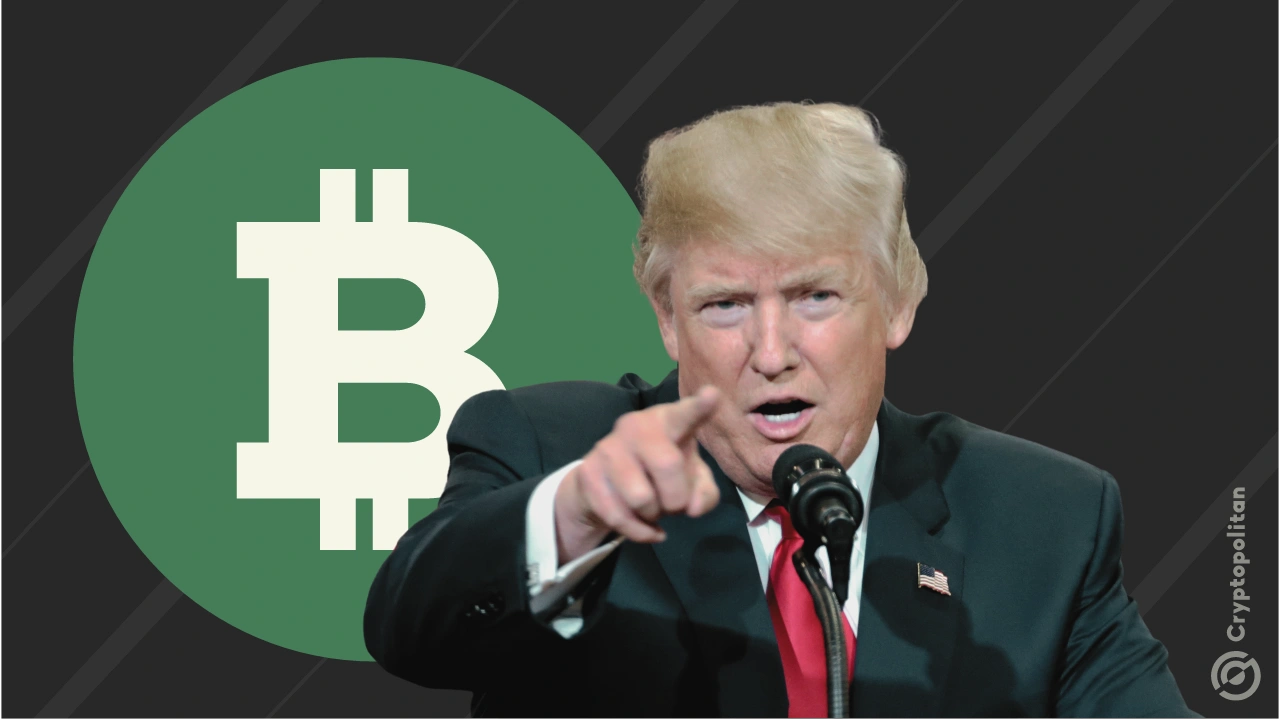President-elect Donald Trump has officially confirmed plans to create a US Bitcoin strategic reserve, a decision he’d been flirting with during the last few months of his campaign.
This comes just as Bitcoin’s price exploded past $100,000, riding the wave of optimism following his re-election.
Meanwhile, Russia, led by Trump’s frenemy President Vladimir Putin, is exploring its own Bitcoin reserve strategy, raising fears of an impending “crypto cold war.” The stakes? Global economic dominance and the future of money itself.
Speaking at the NYSE last week, Trump said: “We’re gonna do something great with crypto because we don’t want China, or anybody else… but others are embracing it, and we want to be ahead.” When asked directly whether this meant creating a reserve similar to the US oil stockpile, Trump responded, “Yes, I think so. That’s still on my mind.”
Russia’s crypto ambitions heat up
Russia has wasted no time signaling its intent to join the Bitcoin reserve race. After facing economic sanctions from the West and seeing its foreign currency reserves frozen, Putin publicly praised Bitcoin as a strong alternative to traditional financial systems.
The reasoning is clear: Bitcoin offers a way to sidestep the global financial order dominated by the US dollar. If Russia succeeds, it could upend the current economic balance, creating new challenges for the US and its allies.
Republican Senator Cynthia Lummis has introduced the Boosting Innovation, Technology, and Competitiveness Through Optimized Investment Nationwide (BITCOIN) Act to Congress. The bill proposes the US acquire 1 million Bitcoins over the next five years to tackle the ballooning $35 trillion national debt.
Right now, the US holds about 200,000 confiscated Bitcoins, worth approximately $20 billion. These coins were seized in criminal cases and could form the foundation of the reserve. But Lummis’s bill takes things to another level, mandating the government to buy and hold Bitcoins for at least 20 years.
The potential cost of this decision is chilling. With Bitcoin trading at over $100,000, acquiring 1 million tokens would cost around $100 billion at current prices. Critics argue this is an enormous gamble for a speculative asset with no industrial use or guaranteed returns.
Yet, Trump’s supporters believe the idea is perfect. Bitcoin’s fixed supply and decentralized nature make it a hedge against inflation and government mismanagement—qualities increasingly appealing as the dollar faces mounting pressure from national debt and global skepticism.
Critics sound the alarm
Not everyone is cheering. Skeptics argue that using taxpayer money to buy Bitcoin is reckless. They point out that Bitcoin generates no income and relies entirely on speculative value.
“The government would be playing the greater fool,” one critic noted. The cost of creating a reserve could run into hundreds of billions, either by borrowing or printing more money. Both options could worsen inflation and further weaken the dollar.
And it’s not just the cost. A Bitcoin reserve could make the asset more attractive to banks, allowing them to use it as collateral for loans. If Bitcoin’s value plummets, the fallout could plunge the financial system, leading to yet another bailout — this time for crypto.
Land a High-Paying Web3 Job in 90 Days: The Ultimate Roadmap
This articles is written by : Nermeen Nabil Khear Abdelmalak
All rights reserved to : USAGOLDMIES . www.usagoldmines.com
You can Enjoy surfing our website categories and read more content in many fields you may like .
Why USAGoldMines ?
USAGoldMines is a comprehensive website offering the latest in financial, crypto, and technical news. With specialized sections for each category, it provides readers with up-to-date market insights, investment trends, and technological advancements, making it a valuable resource for investors and enthusiasts in the fast-paced financial world.
